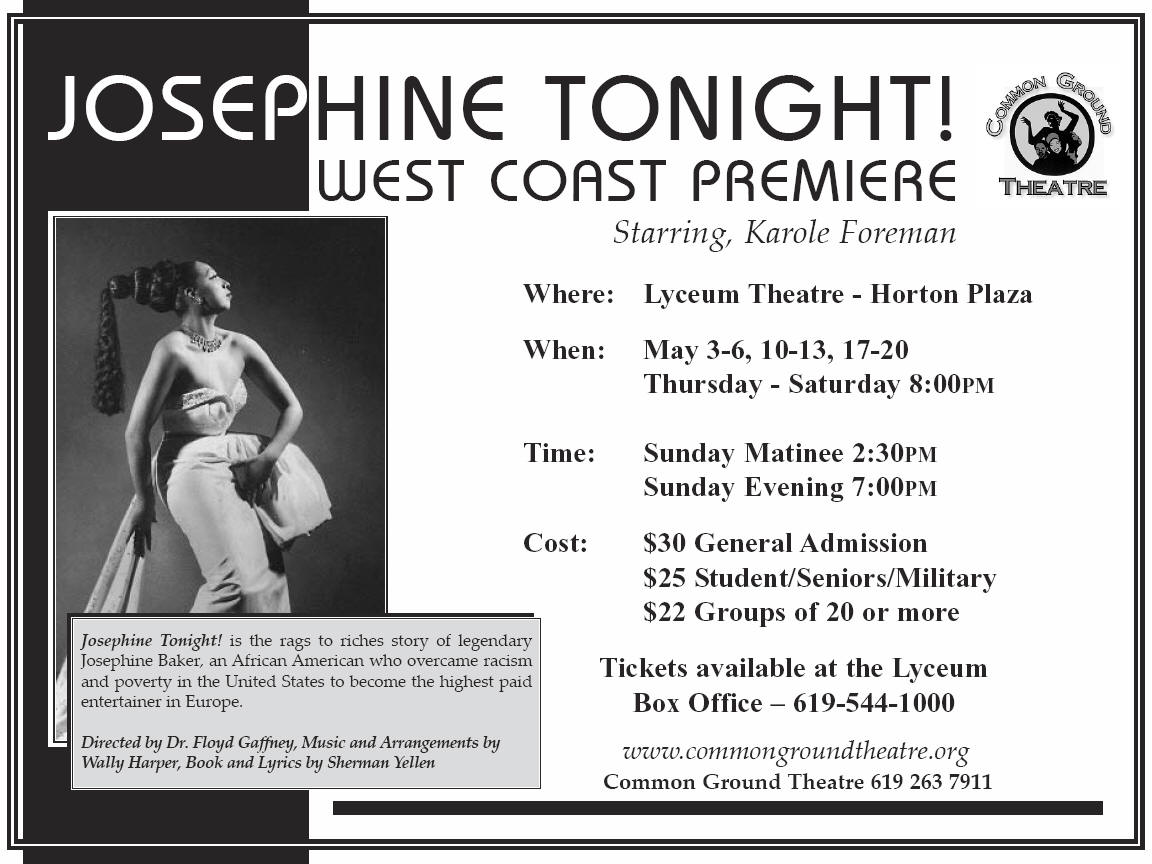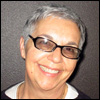|
San
Diego Jewish World
France, Italy, Germany, Spain, and Poland JERUSALEM (Publicity Release)—A large number of Europeans continue to be infected with anti-Jewish attitudes, holding on to the classical anti-Semitic canards and conspiracy theories that have dogged Jews through the centuries, according to a new poll released by the Anti-Defamation League (ADL) this week. A survey of five European countries revealed that a plurality of Europeans believe Jews are more loyal to Israel than to their country and that they have too much power in business and finance. The opinion survey of 2,714 adults – slightly more than 500 in each of the five countries – found an increase in negative attitudes toward Jews, or in some instances no change, from its 2005 findings. |
|||||||
|
5/16/07
SDJW Report (click on headline below to jump to the story) International and National *France, Italy, Germany, Spain, and Poland record increases in anti-Semitic attitudes *Debating the Middle East by email *Some deaf infants may regain hearing without need for surgery, researcher says Daily Features Jews in the News Jewish Grapevine Regional and Local *San Diego area obituaries Arts, Entertainment & Dining *Book on Jesus' crucifixion examines Christian attitudes toward Jews *Spotty, but promising, Josephine Tonight at times brings Lyceum house down For Your Reference San Diego Jewish Community Calendar San Diego Jewish Community Directory Advertisements Anderson Travel JFS Pete Earley luncheon Josephine Tonight Archives Return to Home Page |
As to attitudes regarding Israel and the Middle East, the poll showed mixed findings. For example, sympathy for the Palestinians over Israel continue but strong attitudes against Iran and Hamas were evidenced. Asked about Iran's nuclear development, a majority believe Iran is developing a nuclear weapon and strongly support sanctions against Iran. A majority identified Hamas as a terrorist organization and supports the European decision not to provide foreign aid to the Palestinian government until Hamas renounces terrorism, and agrees to recognize Israel and agreements signed by Israel and the Palestinian Authority. Attitudes Toward Jews and the Middle East in Five European Countries is a survey of France, Italy, Germany, Spain, and Poland, conducted March 21–April 16 among the general public.
Respondents across the continent were asked a series of indicator questions
representing the most pernicious notions of anti-Semitism
|
|
|||||
|
following four statements were "probably true"
or "probably false." Jews are more loyal to Israel than to this country. § Jews have too much power in the business world. § Jews have too much power in international financial markets. § Jews still talk too much about what happened to them in the Holocaust. Respondents were also asked whether they agree or disagree with the following statement: § The Jews are responsible for the death of Christ; and If their opinion of Jews was influenced by actions taken by the State of Israel and whether they believed the violence directed against European Jews was a result of anti-Jewish feelings or anti-Israel sentimentFindings Summary • A majority of those surveyed across Europe, 51%, believe that Jews are more loyal to Israel than to their own country, with a majority of respondents in Spain, Poland and Germany saying they believe that this statement is "probably true." • High levels of those surveyed still believe in the traditional anti-Jewish canard that "Jews have too much power in the business world." Overall, nearly 39% of all respondents believe this stereotype to be true. • Similarly, respondents still adhere to the notion that "Jews have too much power in international financial markets." Overall, 44% cling to the traditional stereotype. • Large portions of the European public continue to believe that Jews still talk too much about what happened to them in the Holocaust. Overall, 47% of those surveyed believe it is "probably true." In fact, a plurality of respondents in France, Germany, Italy, Poland, and Spain believe this notion to be true. • Overall, 20% of those surveyed continue to blame Jews for the death of Jesus. • Overall, 25% of those surveyed say that their opinion of Jews is influenced by the actions taken by the State of Israel. Of those respondents whose opinions are influenced, a majority, 52%, say that their opinion of Jews is worse as a result of the actions taken by Israel. • Nearly half of all respondents agree with the notion that "American Jews control U.S. Middle Eastern policy;" in Spain - 53%; in Poland - 56%. • Overall, 51% of respondents believe that Iran's nuclear program is being developed for military purposes, with an additional 16% believing it is both a weapons program and a nuclear energy program. Only 14% believe it is solely for nuclear energy. Attitudes 'Legitimize Anti-Semitism' "Millions of Europeans continue to accept a wide range of traditional anti-Semitic stereotypes and conspiracy theories, including the charge that Jews are more loyal to Israel than to their home country. These attitudes help incite and legitimize anti-Semitism, including violence against Jews, and give us great concern," said Abraham H. Foxman, ADL National Director. "We are not surprised to find that a high percentage of the respondents in Spain and Poland hold negative views of Jews. Given each country's history of animus towards Jews, it appears that anti-Semitism is ingrained in the fabric of each society. "Equally disturbing is the finding that nearly half of all respondents, and a majority in Spain and Poland, believe that American Jews control U.S. policy on the Middle East, and old canard that has been resurrected in mainstream America and bolsters existing European attitudes. "The findings of this survey demonstrate that individual governments and the EU, who have condemned anti-Semitism and sought ways to counteract it, need to find methods and implement programs that will break down the old stereotypes that die hard, and take leadership to make anti-Semitism unacceptable in their societies." Country by Country Findings In responding "probably true" to the statement, "Jews are more loyal to Israel than their own country," the 2007 survey found: (view graph) § France – 39%, up from 29% in 2005 § Germany – 51%, down from 55% § Italy – 48%, down from 57% § Spain - 60%, up from 51% § Poland – 59%, up from 52% In responding "probably true" to the statement, "Jews have too much power in the business world," the 2007 survey found: (view graph) § France – 28%, up from 25% in 2005 § Germany – 21%, up from 20% § Italy – 42%, up from 33% § Spain – 53%, up from 45% § Poland – 49%, up from 43% In responding "probably true" to the statement "Jews have too much power in international financial markets," the 2007 survey found: (view graph) § France – 28%, up from 24% in 2005 § Germany – 25%, up from 24% § Italy – 42%, up from 32% § Spain – 68%, up from 54% § Poland – 54%, up from 43% In responding "probably true" to the statement "Jews still talk too much about what happened to them in the Holocaust," the 2007 survey found: (view graph) § France – 40%, up from 34% in 2005 § Germany – 45%, down from 48% § Italy – 46%, down from 49% § Spain – 46%, no change § Poland – 58% up from 52%
ADL commissioned First International Resources to conduct the survey. Fielded in
Europe by Taylor Nelson Sofres, the telephone interviews were conducted in the
native language of each of the countries, among the general population. The
margin of error for each country is +/-4 percent at 95% level of confidence.
The foregoing was provided by the Anti-Defamation League.  Letter from Jerusalem _________________By Ira Sharkansky____________ Debating the Mideast by e-mail JERUSALEM—I responded to a note from Khalid that employed his usual collection of accusations about Israeli Nazis, Holocaust, genocide and other cruelties imposed on innocent Palestinians. I sent my reply to all the people who received his message, and thereby met some new friends. The context is increasing chaos in Palestinian. The nth cease fire between Fatah and Hamas is in smoke. Deaths of fighters and others in Gaza have reached the level of 10-15 per day. It is small change compared to Baghdad, but a step up toward the big leagues. Hamas is blaming Israel for Fatah deaths, which Fatah is not buying. Somebody wounded an official Egyptian emissary on his way to a meeting called to arrange yet another cease fire. Hamas is increasing the rain of rockets on Sderot. Thirty of its residents were hospitalized yesterday, two of them in serious condition. The assessment here is that Palestinians want to provoke an Israeli response that might bring them to stop killing one another. Israel's government pondered a range of options from a massive invasion to letting the Palestinians kill one another while the IDF demonstrates restraint. Restraint will play well outside of Israel, but not in Sderot. Chances are for something somewhere between the extremes. Khalid is a resident of Hebron who studied in Oklahoma, then ran afoul of Israeli security and does not, or cannot leave his home town; Chris, is an American who mentions a background in the Peace Corp and more recently Iraq; Mary is an Israeli peace activist; Ahmed is an Arab from somewhere outside of Palestine; Joachim claims time spent in Israel and refers to Hebrew and Yiddish literature. Khalid cannot resist the analogies of Israeli Holocaust and genocide, despite notes from me (and Mary) that he is infuriating many of the people he needs to convince. He predicts the imminent capture of Israeli government by Gush Emunim and other settler extremists, and then the onset of a Holocaust. Being confined to Hebron may shape his thinking. A high incidence of the Israelis he encounters or hears about are as far off the center as he is. I have tried, without success, to convince him that the settlers have no better chance than Mary of governing Israel. Mary circulates among the Israeli left, perhaps further away than Meretz and its supporters, as well as among Israeli Arabs and Palestinians. She is hopeful of the proper values spreading further until they turn the Israel establishment. She is the most outspoken about my own isolation among people who think like I do. Either she does not know what prevails in a university faculty of social science, or that is not far enough to the left for her. We remain worlds apart. She recoils at Khalid's accusations about Israeli Nazis, but does not concede that Israelis who describe themselves as anarchists also limit their influence. As I understand political history, that label lost its appeal more than one hundred years ago. Ahmed signs on to the conventional Arab view of who is responsible. He shows signs of recognizing other perspectives, but most of my notes come back on account of a problem with his address. Chris sees an Israeli collapse due to our violation of all that is legal and decent. When pressed to compare recent Israeli and Palestinian accomplishments (who is collapsing?) he says that it may not be immediate, but sees an outer limit of three years. Joachim argues that Jewish involvement in efforts to help the people of Dafur are nothing more than efforts to masks the abominations that we are visiting on the Palestinians. He has some nasty things to say about Russian and Zionist Ashkenazim, as well as classical Hebrew texts that express Jewish affinity for the Promised Land. He is more impressed by segments of the Quran that tell him it belongs to the Palestinians. This correspondence is instructive as well as annoying. I may be old and stubborn, but I continue to value my education, experiences, and judgment. Arrogance or self-respect? You judge. I remain convinced that my reality is real.
(return to top)
HAIFA, Israel (Publicity release)—Clinical research conducted in the Department
of Communication Disorders at the University of Haifa revealed that some
children who are born deaf "recover" from their deafness and do not require
surgical intervention. To date, most babies who are born deaf are referred for a
cochlear implant.
There are two causes of congenital deafness among children. One is the lack of
hair cells, receptors in the inner ear that convert sounds into pulse signals
that activate the auditory nerve. The second cause is a malfunction of the
nerves. A child may be born with what appears to be a normal inner ear, but the
hair cells do not "communicate" with the auditory nerves and the child cannot
hear.
This discovery, like other revolutionary discoveries, was made by chance. A
child who was born with malfunctioning hair cells and was scheduled for a
cochlear implant was referred to Attias for a pre-surgical evaluation. The
evaluation found that the child's brain and auditory nerves exhibited beginning
responses to sound stimuli. The surgery was postponed. Follow-up visits showed
increasing function of the hair cells and eventually the child reached a state
of normal hearing.
Attias then found another five children who had been referred to him for
pre-operative testing who had begun to hear. At the end of his clinical
research, he identified a "window of opportunity" of 17 months during which deaf
children may begin to hear. He
added that some of the children only develop partial hearing, which can be
augmented with external hearing aids. Attias is now researching "temporary
deafness" among young children, looking to find a way to identify those who
Where:
Doubletree Hotel - Mission Valley ∙ 7450 Hazard Center
Drive, San Diego, CA 92108
When: Tuesday, May 22, 2007 ∙ 11:15am - 1:30pm
Crazy: A Father’s Search Through America’s Mental Health
Madness, details Pete Earley’s
REGISTER NOW Information
& Registration ∙ (858) 637-3231
*Solomon Berman, 87, an Escondido resident who owned a
hobbies and crafts store, died Saturday, May 12, leaving his wife Silvia;
daughter Barbara Horn; son Barry Berman, three grandchildren and four great
grandchildren. Born April 23, 1920, in New York, he was buried at Beth
David Cemetery in Elmont, N.Y. Am Israel Mortuary handled the local
arrangements.
Book on Jesus' crucifixion examines Jeremy
Cohen. Christ Killers: The Jews and the Passion, From Bible to the
WESTMINSTER, Calif.—Who killed Jesus? The debate is as old as the formal
In the
first of its three parts, Cohen inquires if the Gospel is history remembered,
Cohen also
focuses attention on Melito of Sardis, the author of the poem
In Part
Two, which spans from the fourth to the mid-twentieth centuries, Cohen
Seven
hundred years after the death of Augustine, at the dawn of the Age of
Beginning
in the twelfth century and continuing into the twentieth century, Jews
Nostra
Aetate
altered the modern relationship between Jew and Christian. It
The final
part of the book focuses on the Passion story and the arts. Cohen notes
Pasolini’s
movie, The Gospel According to Saint Matthew, appeared in 1964.
Other
Passion movies appeared during the last years of the twentieth century and
The book
is accessible to both scholars and lay persons alike, and relates much
Dr. Fred Reiss is a retired public and Hebrew school teacher and administrator.
He is the
___________________
by
Carol Davis
SAN DIEGO—When Josephine Baker was growing up, she knew she didn’t want to wash the clothes of rich white people like her mother did. And she didn’t! While she did clean houses and did babysitting and against all odds, hers was truly a rags to riches story and one that deserves being told. Lyricist/librettist Sherman Yellen, (the son of Jewish –Russian immigrants who grew up in poverty himself) and composer, the late Wally Harper put together the story of Baker’s growing up days in East St.Louis to her rise to stardom and fame as a Parisian sensation. With Yellen’s book and Harper’ music their musical biography, Josephine Tonight, is currently being mounted on the stage of the Lyceum Space in downtown San Diego in the Repertory Theatre, through May 20. It is only the second time it has been mounted. Unfortunately it was less than ready for prime time on opening night. By now, however, things have settled in, the pace picked up and the cast is more relaxed. That said, however, Yellen’s book still needs work. It’s spotty, gaps need filling in and some of the material could be eliminated. In short, it needs tightening and more coherency. It does however, have promise and the musical numbers are lively and true to the story. Freda Josephine McDonald was born in 1906 to Carrie McDonald and vaudevillian- drummer father Eddie Carson. Carson flew the coop shortly thereafter and Carrie remarried but her new husband was always out of work. While she did other people’s laundry, young Josephine, somewhat of an anomaly for those times, was an independent woman who decided what she did, with whom she did it and when. No one could have forecast her rise to fame while she toured the United States with various acts and bands. She enjoyed some success at the Plantation Club in New York but was furious when she was not allowed in ‘white only’ restaurants. When she traveled to Paris for La Revue Nėgre it proved to be a turning point in her career. Yellen’s story begins in the streets of St Louis with Josephine’s mother singing an ode to dirty clothes, professing that one can tell a lot from the spots in the underwear. There we meet some of the people who will be influential in Josephine’s (Karole Foreman) early life; her mother Carrie,( Ida L. Rhem who was not ready on opening night), Big Bertha Smith (Candace Ludlow Trotter) and Frenchman John DeCarlo (Paul Colin). We learn from the outset the young Josie wants to be someone, a star; famous. She dances on the street and joins a musical comedy act that tours the black vaudeville circuit. This is where she meets up with Big Bertha who takes her under her wing. Trotter is a bigger than life character and next to Foreman, is the best thing the production has to offer. Her two show stopper numbers, “A Beautiful Friend” and “Bertha’s Blues” brought the house down. Under the direction of founding father and artistic director Dr. Floyd Gaffney, Common Ground Theatre (formerly Southeast Community Theatre) Josephine Tonight was made possible by the city of San Diego Commission for Arts and Culture and several other organizations. In his notes, Gaffney recalls, as a young man, seeing Baker in The Great White Way. It was her final farewell American Tour. It was only natural and right that Common Ground Theatre mount the staging of this important event in our history for more than one reason, not the least being about social equity and justice. Josephine Tonight and Karole Foreman are a match made in heaven. Foreman is just right as the sassy singer who breathes life into a bigger than ever character and turns her into a stylish and mature woman. Support from Jason Mallery as Eddie Baker, one of Josephine’s husbands, Rhys Greene, and Chirell Warren as Mother and Father Jones, the couple whose act Josephine appears in gets some fun time in with the cakewalk, “Slap Happy Joneses” and a daffy number, “Chicken Strut”. Araceli Carrera choreographed. Pianist Lionel Jasmin and drummer Joseph Young, Jr. provided the music. Next time out, a full band would give the overall feel of a big time musical. Josephine Tonight will continue through May 20.For more information call (619) 544-1000. See you at the theater. |
|||||||


 Jews
in the
News
Jews
in the
News

